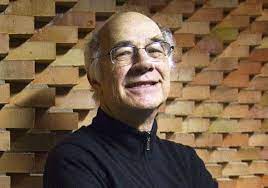Burawoy, Michael

Bio: (1947-2025) British-American sociologist. Michael Burawoy received his Ph.D. from the University of Chicago and taught at the University of California, Berkeley. He belongs to the current of analytical Marxism. Using the participatory observation method, he researched work in industrial plants in four countries: Zambia, the USA, Hungary, and Russia. From Marxist positions, he studied postcolonialism, class consciousness, and the organization of labor in socialism, as well as the transition from socialism to capitalism.
In his book Manufacturing of Consent (1979), Burawoy examines the ways in which directors and managers in companies obtain consent from workers, that is, how they manage to persuade them to cooperate with management. Management in companies gives up strict control over workers and the work process, so workers have the impression that they have greater rights, so their dissatisfaction is reduced. The consent of workers to exploitation, despite oppression and low wages, is also created by manipulating and inciting conflict between the workers themselves.
In the article "For Public Sociology" (2005) and the book Public Sociology (2021), Burawoy presents arguments for the development of public sociology. He sees public sociology as critical and engaged sociology that should deal with the public, and be written for the public. Public sociology should be politically engaged in four fields: professional politics, practical politics, politics that stimulate public debate, and political awareness of students by stimulating critical deliberation.
Burawoy developed his empirical research method, which he called the "extended case method". He uses this method to "expand" the theory by directly linking it to a specific historical case. It is a reflective method that re-examines the relationship between data and theory. To re-examine an existing theory, cases are selected that are assumed to be of great theoretical importance, that is, cases on the basis of which further generalizations could be made. For this purpose, cases are selected that do not fit or are not covered by existing theories. In the book The Extended Case Method (2009) Burawoy, he represents the results of his research that is based on four case studies. In that research studied the relations between domination and resistance to domination in capitalism, and he used those results to reconstruct the sociological theory of developed capitalism.
Main works
The Colour of Class on the Copper Mines: From African Advancement to Zambianization (1972);
“Social Structure, Homogenization, and ‘‘The Process of Status Attainment in the United States and Great Britain”,’’, in American Journal of Sociology (1977);
Manufacturing Consent: Changes in the Labor Process Under Monopoly Capitalism (1979);
The Politics of Production: Factory Regimes Under Capitalism and Socialism (1985);
Ethnography Unbound: Power and Resistance in the Modern Metropolis (1991);
The Radiant Past: Ideology and Reality in Hungary's Road to Capitalism (1992);
„For Public Sociology”, u American Sociological Review (2005a);
The Politics of Method in the Human Sciences (2005b);
The Extended Case Method: Four Countries, Four Decades, Four Great Transformations, and One Theoretical Tradition (2009);
How to Be an Anticapitalist in the Twenty-First Century (2019);
Public Sociology (2021).

